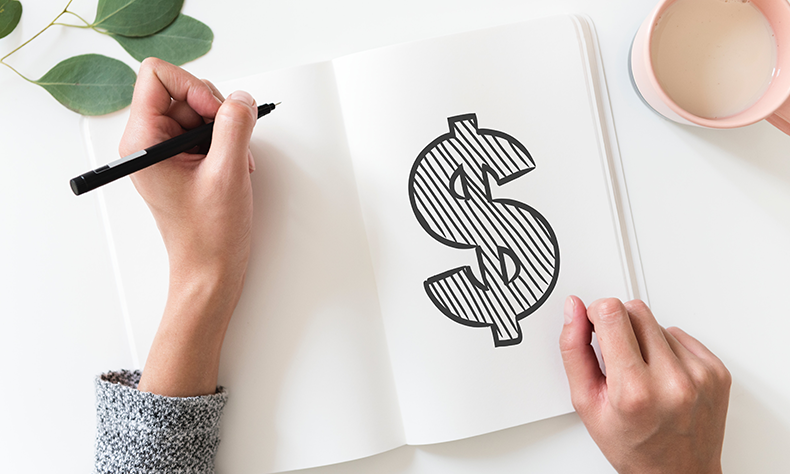EARNING & SPENDING
Australia is a beautiful continent with a highly inspiring cultural and ecological diversity. Being the most prosperous economies in the world, the standard of living in the country is comparatively higher in comparison to other countries. The lifestyle of people considerably reflects the economic growth of Australia. Though there is a lot of disparity in the rural and urban areas, cities like Sydney and Melbourne are known for their vibrantly eclectic aura. It is highly important to consider that in spite of a booming economy, Australia has succeeded in maintaining low inflation growth. Keeping the citizens in consideration, Australian government also invests in health and social structure at a larger scale. It is due to high living standards and most advanced facilities that Australia attracts a lot of immigrants and migrants each year.


COST OF STUDYING IN AUSTRALIA
Primarily depending on the institution and level of study undertaken, the studying costs in Australia is highly dynamic. With 7 Australian universities in the list of 100 best universities in the world, Australia has marked a remarkable spot in the global education.
- School – Approximately $7,800 to $30,000
- English language studies – Approximately $300 per week depending on course length
- Vocational Education and Training (Certificates I to IV, Diploma and Advanced Diploma) – $4,000 to $22,000
- Undergraduate Bachelor Degree – Approximately $15,000 to $33,000*
- Postgraduate Masters Degree – Approximately $20,000 to $37,000*
- Doctoral Degree – Approximately $14,000 to $37,000*
MINIMUM COST OF LIVING IN AUSTRALIA
The cost of living in the country can significantly vary depending on your household. The Department of Immigration and Border Protection has financial requirements which the applicant must meet in order to receive a student visa for Australia. From 1 July, 2016, the 12 month living cost has been statistically calculated as:
- You – $19,830
- Partner or spouse – $6,940
- Child – $2,970

COST OF LIVING BREAKDOWN:
| Supermarket Food | Approximate Cost |
|---|---|
| Loaf of bread | $1.98 |
| 1 kg rice | $1.18 |
| 1 kg apples | $3.98 |
| packet of instant noodles | $1.27 |
| 1 kg potatoes | $2.50 |
| tin of tuna | $1.60 |
| 500g minced beef | $6.25 |
| 6 eggs | $1.75 |
| cheese (non-specialist) 250g | $3.50 |
| 1 litre of milk | $1.44 |
| 1 packet of biscuits | $1.30 |
| 1 litre orange juice | $3.41 |
| 1 packet teabags (50 pack) | $2.14 |
| 1 jar instant coffee (200g) | $3.22 |
| Entertainment | Approximate Cost |
|---|---|
| Cinema ticket (full price) | $17 |
| Nightclub entrance | $25 |
| Pint of beer (570 ml) | $3.50 – $5.00 |
| Miscellaneous | Approximate Cost |
|---|---|
| Camera film | $8.00 + |
| Shampoo | $4.89 – $8.86 |
| Soap | $3.29 |
| Haircut (men) | $15.00 upwards |
| Haircut (women) | $30.00 upwards |
| Phone call | $.50 upwards |
| Stamp for letter abroad | $.50 – $2.20 |
| Mobile phone text message (within Aus) | $0.25 |
| Mobile phone text message (within Aus, to same network) | $0.60 |
| Transport | Approximate Cost |
|---|---|
| Taxi | $1.53 per km |
| Bus fare (weekly) | $11.00 – $45.00 |
| Train fare (weekly) | $30.00 – $50.00 |
WORK WHILE YOU STUDY
The Australian Student Visa allows the individual to work for 40 hours per fortnight when the course is in session and without limitations during scheduled course breaks. However, the overseas students need to have a Taxation File Number (TFN) from the Australian Taxation Office to be eligible to work. Moreover, there are plenty of ways to find work in Australia, such as, newspapers, online portals, recruitment firms and more.
- Paid Work – In retail, hospitality, tourism, agriculture, sales, telemarketing, administration,
tutoring and more - Internships – Paid and unpaid
- Volunteering – Charities and non-government organisations (NGOs)


WORKPLACE RIGHTS FOR ALL VISA HOLDERS IN AUSTRALIA
All the employers in Australia are required to comply with the immigration and Australian workplace laws. The Fair Work Ombudsman Pay and Conditions Tool (PACT) provides valid information on pay rates, leave arrangements, shift calculations and redundancy entitlements.
